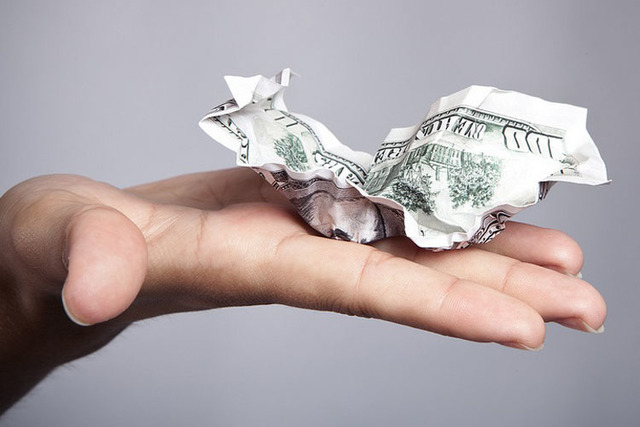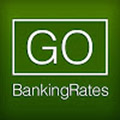How to never pay another checking overdraft fee again
On a hectic, errand-running weekend, it’s easy to lose track of checking account transactions along the way. But racking up overdraft fees is an easy way to dig yourself deeper into the red, especially if you’re living paycheck to paycheck.
Moebs Services, a financial research firm, found that the first six months of 2012 saw a 2.1 percent rise in overdraft fee revenue for banks. In the first half of the year, financial institutions drew in $31.5 billion — a considerable increase from $30.8 billion in June 2011.
Despite bank regulation changes in 2010, which prevented banks from automatically enrolling customers in overdraft protection programs, you can still be slapped with overdraft fees if you’ve opted in to your bank’s overdraft service or have written a check with insufficient funds in a checking account.
Whether the overdraft charge was an innocent oversight or timing on an electronic transfer just wasn’t on your side that day, you can save yourself considerable cash if you learn how to get overdraft fees waived.
How to Get Overdraft Fees Waived
Not many depositors stop to contest overdraft fees, since they’re usually the ones at fault. However, even if the blame can be solely placed on your shoulders, you don’t have to suffer from these costly fees.
Wouldn’t you rather use overdraft fees toward a movie night with friends or to buy groceries for the week? The fact is overdraft fees are a huge blow to your finances. Luckily, by knowing how to get overdraft fees waived with the right approach (even if you were in the wrong), you can relieve yourself of this financial burden.
1. Remain Polite and Patient
Even if your request to have an overdraft fee waived is initially shot down, don’t lose your head. Regardless of the barricades your bank representative puts up to deny your request for a waiver, press on with kindness. No one wants to deal with an irate customer who’s yelling — talk it out with the associate and remain pleasant throughout the entire exchange.
Los Angeles resident, Jaime Catmull, was shocked when she found she’d been charged several overdraft fees of $30 each after a quick meal at McDonald’s. But she quickly found that a polite tone and simple request was all it took to save her almost $100 in fees.
“All I did was call them up and ask to have the entire string of overdraft fees wiped off my bank account,” Catmull said. “I made sure to ask nicely. They didn’t question me for an explanation at all, and waived every charge on the spot.”
Typically, a simple phone call will suffice to get the fee waived. There’s no reason to unnecessarily waste your breath with a long and grueling explanation from the onset. Your initial request can be as simple as:
“Hi, I just noticed an overdraft fee on my account. I’m calling to have it waived.”
The representative will likely put you on hold to either review your account or seek approval from a supervisor to proceed, but with a positive approach you’ll likely see equally positive results.
2. Focus on How Great You Are
If this is your first offense, or if it has been quite some time since your last overdraft incident, play up your good customer report card. Explain that it was a one-off mishap, and refer back to your sterling record.
Have you never let your account slip into the negative before? Is your paycheck direct deposited into the account? If yes, you can strengthen your defense by asking for a good faith waiver. Many checking account holders, including Andrew Schrage of MoneyCrashers.com, have had success at using their good rapport with an institution to get overdraft fees waived.
“The last time I switched banks, I unfortunately didn’t do a very good job of staying organized throughout the process,” Schrage said. “I switched my direct deposit into the new account, but forgot to transfer a few automatic payments from my old account. As a result, two utility bills were drawn from the old account when there weren’t enough funds to cover them.”
Despite secretly planning to switch banks anyway, he decided to pursue a waiver request.
“… I just told them there was a problem with my direct deposit. I previously had a very good history with the bank and had never faced an overdraft before, which helped me to get a one-time adjustment.”
Loyalty also plays a major role in your ability to get overdraft fees waived. Especially after the Bank Transfer Day movement several years ago, financial institutions are wary of losing their most loyal customers due to fees. Note how many years you’ve been a customer with the institution, and add in the number of active accounts you have with the bank to prove your point.
A response similar to this might press your stance:
“I’ve been a loyal customer for 12 years, and have opened a number of accounts with this bank because I was always treated right. But I really would like this overdraft fee waived. What else can you do to help me with this?”
If the customer service representative sounds determined to not waive your charges, you don’t have to take “no” for an answer.
3. Make an Appearance
PeopleMetrics’ 2010 Most Engaged Customers study found that eye contact and being able to physically see facial expressions “allow for a better understanding of mood and personality.”
Visit your branch in person, and speak with an associate about how to get overdraft fees waived. It’s a lot harder to say no to a customer who’s looking you straight in the eye. Use this one-on-one approach to your advantage by enacting both tips above. This trifecta should convince the bank teller and the supervisor that you deserve to be pardoned from the overdraft fees.
While these recommendations might get overdraft fees waived, an even better safeguard against these fees is to opt out of overdraft protection for checking accounts. Sure, you won’t be able to rack up purchases carefree, but at least you won’t have overdraft fees looming over your head.
With so many banks and credit unions being extra sensitive to how customers respond to overdraft fees, there’s no reason to let these charges hack away at your funds.
From GoBankingRates.com: How to never pay another bank overdraft fee again
Related Stories:
-Guide to understanding overdraft fees


















